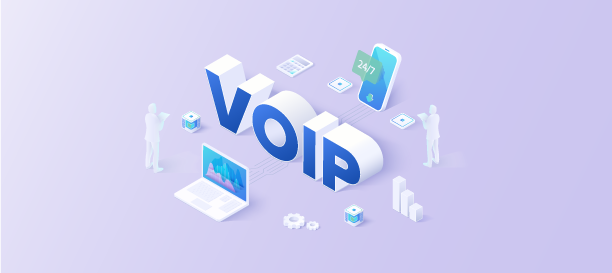How Cloud Computing and VoIP Support Business Continuity and Remote Work
When the COVID-19 pandemic hit, many businesses had to switch to remote work fast. They needed to adapt quickly to keep running. While the transition was challenging, two technologies stood out as game-changers: cloud computing and VoIP (Voice over Internet Protocol). These technologies not only enabled organizations to function during unprecedented times but also redefined how modern businesses operate today.
The Role of Cloud Computing in Enabling Remote Work
Cloud computing allows businesses to outsource data storage and access business-critical software applications from any location. Instead of using only on-site servers, companies can store their data in the cloud. This lets team members work together in real time from anywhere in the world.
This anytime-anywhere access was a major factor in helping businesses survive the pandemic. Teams could access customer data, manage projects, and run operations without being tied to a specific office. From file sharing to enterprise resource planning (ERP) systems, the cloud transformed remote work into a feasible, secure solution for many businesses.
In addition to accessibility, cloud platforms offer enhanced data security, automatic backups, and scalable storage, making them ideal for businesses looking to ensure business continuity during both short-term disruptions and long-term changes in the workforce model.
VoIP: A Unified Communication Solution
Alongside the cloud, VoIP technology became a critical enabler of business communication in a remote-first world. VoIP changes voice into data packets and sends them over the internet. This removes the limits of old PBX systems, which were often linked to specific office locations.
Unlike landline-based telephony, VoIP lets employees make and receive calls from anywhere—using their laptops, mobile phones, or VoIP desk phones. But VoIP goes beyond voice calls. Most modern business VoIP solutions support video conferencing, instant messaging, screen sharing, and integration with collaboration tools such as Microsoft Teams or Zoom.
This unified communication platform enabled businesses to keep their teams connected and productive, no matter where they worked from. Whether supporting full-time remote employees or hybrid work models, VoIP proved to be a reliable and cost-effective solution.
Managed IT Services: Maximizing the Value of Cloud and VoIP
While cloud computing and VoIP offer great features, managing these technologies can be tough. This is especially true for small and medium-sized businesses. That’s where a trusted Managed Services Provider (MSP) comes in.
An MSP like Tobin Solutions can help implement, secure, and manage your cloud and VoIP infrastructure to ensure optimal performance and compliance with industry standards. Working with an MSP helps with setup, configuration, and ongoing monitoring. It also includes staff training. This partnership gives you peace of mind. Your team can then focus on growing the business instead of fixing tech issues
Whether you’re continuing to support a hybrid workforce or planning a full return to the office, investing in the right technologies and partnerships will define your organization’s resilience moving forward.
Contact Tobin Solutions today to learn how we can help you modernize your IT infrastructure and support secure, seamless business operations—wherever your team works.
© 2025 Tobin Solutions. All rights reserved.
